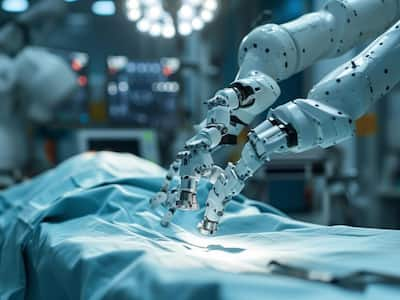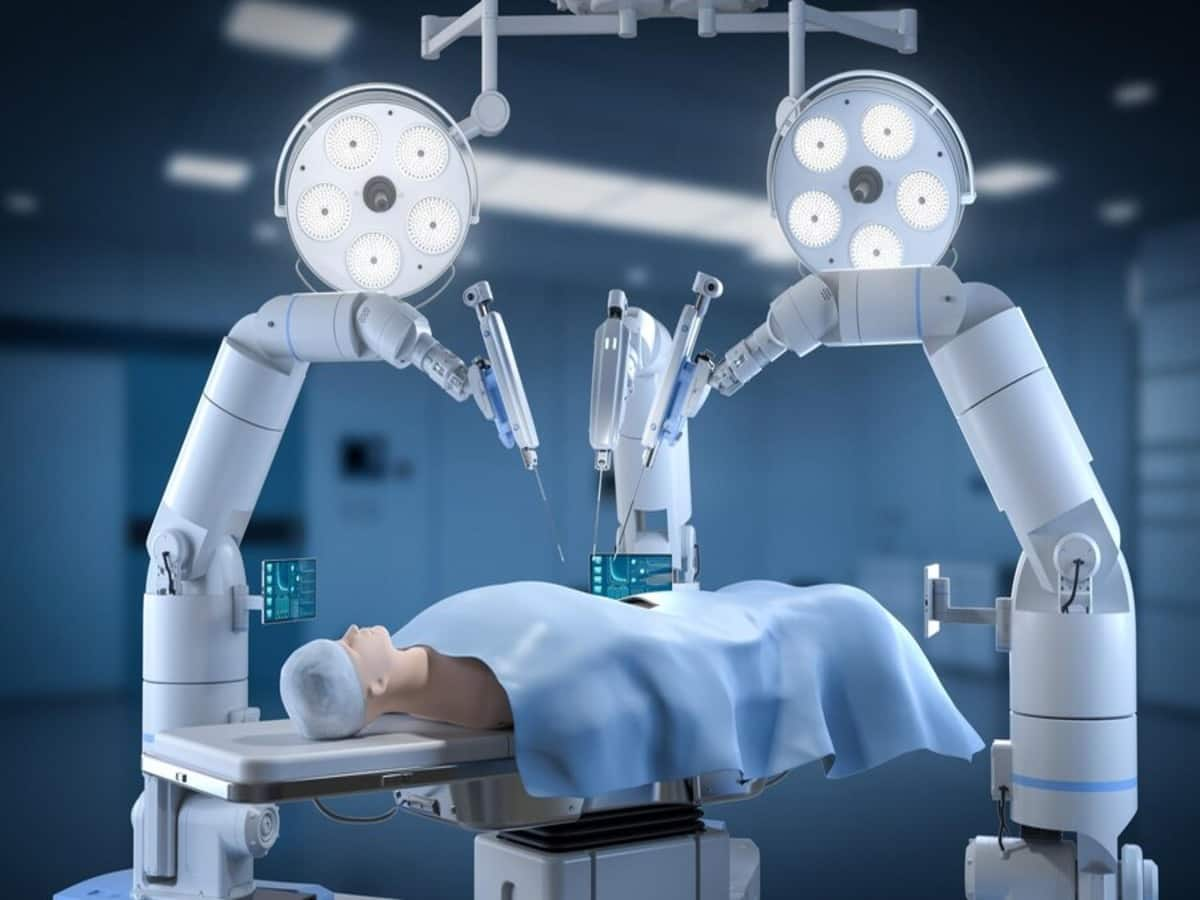Don’t Miss Out on the Latest Updates.
Subscribe to Our Newsletter Today!
The Age Of Tech: How Is Robotic Surgery Enabling Oncologists And Helping Patients?

According to a doctor, the evolution of robotic surgery has revolutionised cancer treatment by offering safer, more effective, and less invasive surgical options for patients, ultimately improving their quality of life and long-term prognosis.
In the last few years, the health sector has undergone a remarkable transformation, with regard to technological advancements. It has helped with cancer cases, too. In the oncological discipline, advancements in technology, research, and multimodal therapy have led to a paradigm shift. Innovation has led to minimally-invasive techniques and robotic surgeries in recent years that have brought about a revolution in traditional cancer care methods. "Gynecologic oncologists, for instance, must carefully consider various technical aspects of surgery to align with a patient's goals and planned extent of cancer removal. With advancements like robot-assisted surgery, these considerations have been addressed more effectively," says Dr Sachin Marda, clinical director, senior oncologist and robotic surgeon at Yashoda Hospitals.
Dr Marda says that laparoscopic surgery initially showed 'reduced surgical morbidity and faster postoperative recovery'. "Now, robotic surgery further expands the scope of minimally-invasive procedures, allowing even morbidly obese or medically complex patients to undergo surgery with caution."
How is Robotic Surgery Enabling Oncologists?
According to the doctor, robotic surgery has revolutionised the treatment of various cancers. For colectomies, surgeons 'increasingly favour robotic approaches due to enhanced 3D visualisation, a steady camera, improved instrument control, and reduced fatigue and hand tremors'. "With a control console, surgeons can maneuver robotic arms equipped with surgical tools, enhancing precision and efficiency during procedures."
Also Read
- Enhanced Precision: Robotic systems provide surgeons with greater precision and dexterity, allowing them to perform intricate cancer surgeries with increased accuracy. This precision is crucial in removing cancerous tissue while minimising damage to surrounding healthy tissue.
- Minimally Invasive Approach: Robotic surgery enables minimally-invasive procedures, which involve smaller incisions compared to traditional open surgery. These incisions result in reduced trauma, less postoperative pain, shorter hospital stays, and faster recovery time.
- Improved Visualisation: Robotic systems offer high-definition, three-dimensional visualisation of the surgical site, allowing surgeons to see detailed images in real-time. It helps them to navigate complex anatomical structures more effectively during cancer surgeries.
- Greater Reach and Maneuverability: Robotic instruments have a greater range of motion and flexibility than human hands, allowing surgeons to access difficult-to-reach areas within the body. This is particularly beneficial in cancer surgeries involving deep-seated tumors or intricate anatomical locations.
- Reduced Risk of Complications: The precise control and stability provided by robotic systems can reduce the risk of complications during surgery such as excessive bleeding, damage to nearby organs, and postoperative infections. It can lead to a lower likelihood of surgical complications for cancer patients.

"Overall, the evolution of robotic surgery has revolutionised cancer treatment by offering safer, more effective, and less invasive surgical options for patients, ultimately improving their quality of life and long-term prognosis," says Dr Marda.
How Does It Benefit Patients?
According to the doctor, this is the impact of robotic surgery on patients' recovery:
- Reduced Blood Loss: The precision and control offered by surgical robots help minimise blood loss during surgery, which can contribute to faster recovery and reduced postoperative complications for cancer patients.
- Shorter Hospital Stays: Minimally-invasive robotic procedures often result in shorter hospital stays compared to traditional surgeries. Patients can recover more comfortably at home, reducing the risk of hospital-acquired infections.
- Quicker Return to Normal Activities: With less postoperative pain and faster recovery times, cancer patients who undergo robotic surgery can return to their normal activities and daily routines more quickly.
- Lower Complication Rates: Robotic surgery's precision and accuracy can result in fewer complications during and after surgery. This leads to improved overall outcomes and a smoother recovery process for patients.


